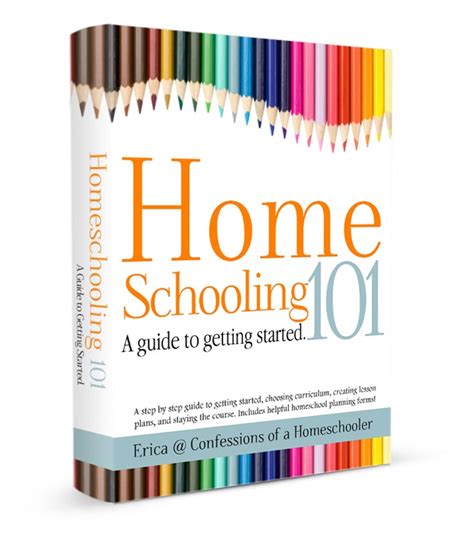Homeschooling has become increasingly popular in recent years, with over 2.5 million homeschooled students in the United States alone in 2019. As more and more parents explore the option of homeschooling, the need for high-quality resources has grown. This article provides a comprehensive guide to the best books on homeschooling, covering everything from curriculum planning to legal considerations.

Essential Books for Homeschool Planning
1. The Well-Trained Mind: A Guide to Classical Education at Home by Susan Wise Bauer and Jessie Wise
This classic text provides a comprehensive overview of classical education, including its history, philosophy, and methods. It offers practical advice on curriculum planning, selecting materials, and teaching effectively.
2. The Homeschooling Handbook: A Step-by-Step Guide by Mary Griffith
This practical guide covers all aspects of homeschooling, from legal matters to curriculum choices. It includes helpful tips and resources for new and experienced homeschoolers alike.
3. The Unschooling Handbook: How to Use the Total Freedom of Unschooling to Raise Smart, Strong, and Self-Reliant Kids by Pam Sorooshian
This book explores the unschooling approach to education, which emphasizes self-directed learning and following the child’s interests. It provides practical advice for parents who want to provide a rich and enriching learning environment at home.
Curricula and Teaching Methods
1. The Complete Guide to Charlotte Mason Education by Catherine Levison
This comprehensive guide to the Charlotte Mason method of education emphasizes a love of nature, literature, and the arts. It provides detailed guidance on curriculum planning and teaching strategies.
2. Montessori at Home: The Complete Guide to Practical Parenting by Paula Polk Lillard
This book provides practical guidance for implementing the Montessori method in the home environment. It includes activities and materials for all developmental stages from birth to adolescence.
3. Waldorf Education at Home: A Practical Guide by Anne Marie Huxtable
This guide introduces the principles of Waldorf education, which emphasizes creativity, imagination, and experiential learning. It offers practical activities and resources for parents who want to incorporate Waldorf elements into their homeschooling.
Legal and Compliance
1. The Legal Side of Homeschooling: A Comprehensive Guide to the Laws That Affect Homeschoolers by Mary Pride
This essential guide covers all legal aspects of homeschooling, including curriculum requirements, record-keeping, and assessments. It provides up-to-date information on laws in all 50 states.
2. The Homeschool Legal Guide: A Step-by-Step Guide to Homeschooling in the United States by Ann Zeise
This practical guide provides legal advice and resources for homeschoolers. It covers topics such as drafting educational plans, creating legal documents, and navigating state laws.
Special Education and Disabilities
1. Homeschooling with Dyslexia: A Guide for Parents and Teachers by Diane Craft
This book offers practical strategies and resources for homeschooling children with dyslexia. It includes information on assessments, curriculum modifications, and teaching methods.
2. Homeschooling with Autism: A Guide for Parents by Susan J. Freeman
This guide provides guidance for homeschooling children with autism spectrum disorder. It covers topics such as creating a structured routine, using visual supports, and developing social skills.
FAQs About Homeschooling
1. What are the benefits of homeschooling?
Studies have shown that homeschooled students consistently outperform their public school counterparts in academic achievement, social skills, and personal development. Homeschooling also allows for individualized learning, flexible schedules, and a closer parent-child bond.
2. Is homeschooling legal in all states?
Yes, homeschooling is legal in all 50 states. However, the specific laws and regulations vary from state to state. It is important to check your state’s homeschooling laws to ensure compliance.
3. What are the curriculum requirements for homeschooling?
Curriculum requirements vary from state to state. Some states have specific subject matter requirements, while others allow parents to choose their own curriculum. It is important to check your state’s homeschooling laws for specific curriculum requirements.
4. Do homeschoolers have to take standardized tests?
Standardized testing requirements for homeschoolers vary from state to state. Some states require homeschoolers to take standardized tests at certain grade levels, while others do not. It is important to check your state’s homeschooling laws for specific standardized testing requirements.
5. How can I find support as a homeschooling parent?
There are many resources available to support homeschooling parents. These include local homeschooling groups, online forums, and legal and educational organizations. It is important to connect with other homeschooling parents and resources to find support and encouragement.
6. What are the challenges of homeschooling?
Homeschooling can be rewarding but also challenging. Some common challenges include managing multiple age levels, finding the right curriculum, and balancing homeschooling with other responsibilities. It is important to be prepared for the challenges and to have a support system in place.
Conclusion
Homeschooling can be a fulfilling and rewarding experience for both parents and children. By choosing the right resources and following sound advice, parents can provide a high-quality education that meets their child’s individual needs. The books listed in this article offer a wealth of information and guidance for homeschooling parents, from curriculum planning to legal compliance. By utilizing these resources and connecting with other homeschooling families, parents can create a thriving and enriching learning environment at home.
